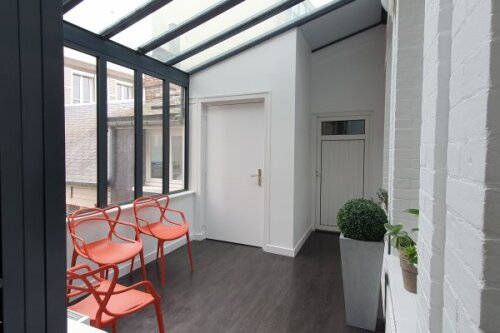Best Collaborative Law Lawyers in Évreux
Share your needs with us, get contacted by law firms.
Free. Takes 2 min.
Free Guide to Hiring a Family Lawyer
List of the best lawyers in Évreux, France
About Collaborative Law in Évreux, France
Collaborative Law in Évreux, France, is a legal practice specially designed to help parties resolve disputes amicably without going to court. This process involves a series of negotiation meetings facilitated by specially trained lawyers who focus on cooperation and communication. The aim is to achieve a mutually satisfactory agreement while maintaining respectful relationships. Originating in the early 1990s in the United States, Collaborative Law has since gained recognition in various countries, including France, where it is appreciated for its cost-effectiveness and efficiency compared to traditional litigation.
Why You May Need a Lawyer
Engaging a lawyer experienced in Collaborative Law can be crucial in various situations. Common scenarios include family disputes, such as divorce or child custody issues, where maintaining a cooperative relationship can be beneficial. It is also applicable in business conflicts where maintaining a partnership or professional relationship is desired. Having a lawyer ensures that the negotiation process is fair, that both parties' interests are considered, and that a legally sound agreement is crafted.
Local Laws Overview
In Évreux and across France, Collaborative Law is not governed by a specific set of local laws but aligns with the national framework for collaborative practices. The process requires voluntary participation from both parties and their lawyers, who sign a "no-court" agreement. This agreement stipulates that if the process fails, the lawyers withdraw, and the parties must seek new legal representation for litigation. French civil law supports this collaborative approach by facilitating out-of-court settlements and encouraging alternative dispute resolution mechanisms.
Frequently Asked Questions
What is the primary goal of Collaborative Law?
The primary goal is to resolve disputes amicably and constructively, avoiding the need for costly and lengthy court proceedings.
How does Collaborative Law differ from mediation?
While both aim for amicable resolution, Collaborative Law involves legal representation for both parties to negotiate terms, whereas mediation typically involves a neutral third party without dedicated legal representation for each side.
What happens if the collaborative process fails?
If the process fails and a settlement isn't reached, the involved lawyers must withdraw, and the parties need to hire new attorneys to represent them in court.
How long does a collaborative process typically take?
The duration varies depending on the complexity of the issues involved and the cooperation of both parties, but it is generally faster than going through court proceedings.
Can Collaborative Law be used for all types of disputes?
While commonly used in family law matters, it can also be applied to business disputes and other civil disagreements where parties wish to avoid litigation.
Are the agreements reached through Collaborative Law legally binding?
Yes, once both parties sign the agreement, it becomes legally binding and can be enforced by the courts if necessary.
Can collaborative lawyers communicate with the court during the process?
No, the process is designed to resolve issues outside of court, and involving the court would typically signify the process has failed.
How do I know if Collaborative Law is right for my situation?
If preserving a relationship or reaching a fair and quick settlement is important, Collaborative Law might be a suitable approach.
Do I need to agree to a collaborative approach before contacting a lawyer?
No, many lawyers will discuss the suitability of Collaborative Law once you contact them and help you determine if it fits your needs.
How are collaborative law sessions conducted?
Sessions usually occur in neutral settings such as lawyers' offices, where both parties, along with their lawyers, discuss and negotiate issues cooperatively.
Additional Resources
For those seeking more information or support, consider reaching out to local legal aid organizations, such as the Conseil Départemental de l'Accès au Droit in Évreux. The French Association of Collaborative Law can also provide valuable resources and lists of trained professionals. Additionally, consulting the local bar association may guide finding suitable legal assistance for collaborative law matters.
Next Steps
If you’re considering Collaborative Law to resolve a legal dispute in Évreux, begin by researching and selecting a lawyer trained in collaborative methods. Arrange for an initial consultation to discuss your situation, the suitability of Collaborative Law, and the steps involved. Be open and honest with your lawyer about your expectations and concerns. This initial groundwork will set the stage for a successful collaborative process, ideally leading to a resolution that satisfies both parties without the need for litigation.
Lawzana helps you find the best lawyers and law firms in Évreux through a curated and pre-screened list of qualified legal professionals. Our platform offers rankings and detailed profiles of attorneys and law firms, allowing you to compare based on practice areas, including Collaborative Law, experience, and client feedback.
Each profile includes a description of the firm's areas of practice, client reviews, team members and partners, year of establishment, spoken languages, office locations, contact information, social media presence, and any published articles or resources. Most firms on our platform speak English and are experienced in both local and international legal matters.
Get a quote from top-rated law firms in Évreux, France — quickly, securely, and without unnecessary hassle.
Disclaimer:
The information provided on this page is for general informational purposes only and does not constitute legal advice. While we strive to ensure the accuracy and relevance of the content, legal information may change over time, and interpretations of the law can vary. You should always consult with a qualified legal professional for advice specific to your situation.
We disclaim all liability for actions taken or not taken based on the content of this page. If you believe any information is incorrect or outdated, please contact us, and we will review and update it where appropriate.








